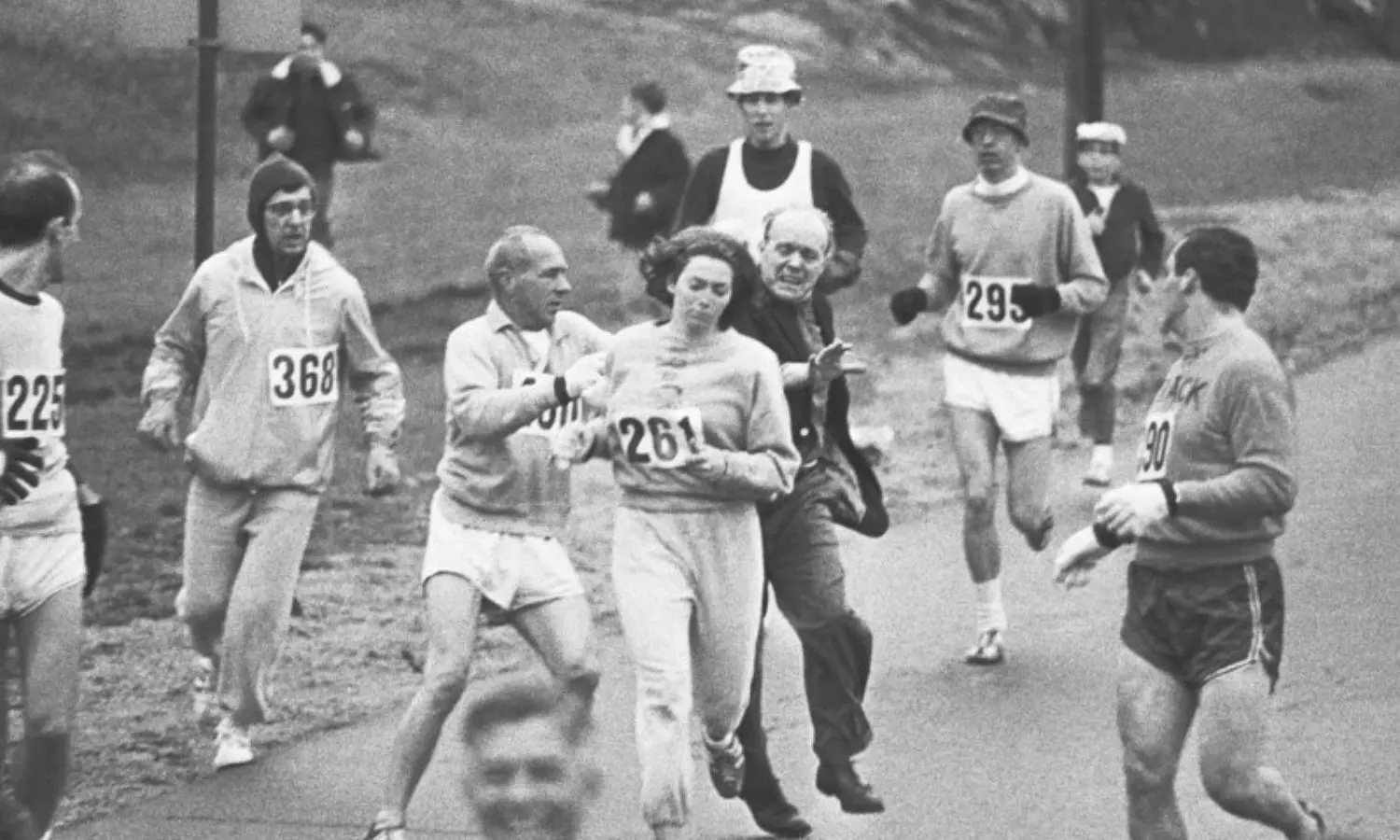Marathon
The woman who kept on running: How Kathrine Switzer dashed for a women's sports revolution
Kathrine Switzer is the first woman marathon runner who participated in the 1967 Boston Marathon, where a shocking life-changing incident with her paved the path for women's marathons in the world.

First woman marathon runner Katherine Switzer being manhandled by race director in 1967 Boston Marathon (Source: SkySports)
In the year 1967, Kathrine Switzer became the first woman to run a marathon when she crossed the finish line of the Boston Marathon that year.
Switzer decided to run the Boston Marathon in 1976 when no woman had ever participated in any official marathon race. Back then people were of the opinion that doing longer physical exercises like running can affect a woman's womb, hence making her infertile.
However, after hearing about the marathon from her "unofficial" coach Arnie Briggs, Switzer had made up her mind and convinced her coach to confirm her participation in the event,
On April 19, along with Arnie, her boyfriend Big Tom Miller and other 739 men runners, 20-year-old Switzer lined up on the starting point with the number "261" pinned to her sweatshirt.
A few miles into the race, press trucks with photographers and other media persons on them started surrounding her. They were asking her questions like – What are you doing in the race? What are you trying to prove?
Suddenly, Switzer was being manhandled by a fierce man, trying to rip the number from her sweatshirt and shouting, "Get the hell out of my race and give me those numbers!"
It turned out that the man was race director Jock Semple, who was later pushed by Big Tom, an American rugby player.
Switzer in several interviews, while recalling the incident said that she was extremely shaken by the incident and couldn't understand why was Jock so angry with her for just running in a marathon. But soon she felt angry by what had just happened and told her coach Arnie that she was going to finish this race on her knees and hands if she had to. She was going to prove that women could also run and cover long distances, just like the men.
With coach Arnie by her side, Switzer completed the Boston marathon after 4 hours and 20 minutes.
As soon as they reached the finish line, journalists gathered around her and started asking questions if she'll be back for the next Marathon? Switzer confidently replied, "Yes I'll come every back again and if they ban my club, I'll change clubs and come back."
What could be called the worst moment, also turned out to be the most iconic incident in Switzer's life and a revolution for the women's marathon.
After this iconic movement in history, it took five years for Jock Semple to officially allow women runners in the race. He and Switzer soon became good friends and also did many interviews together.
Switzer then along with other women runners, not only began a drive for women to officially participate in Boston Marathon but also include women's marathons in the Olympics.
Switzer organized a global series of 400 women's races in 27 countries and after 10 years, she succeeded in getting the women's marathon added to the programme of the 1984 Los Angeles Olympics.
She also organized a marathon in London in 1980, which even after 41 years is held every year.
In 2017, Switzer again ran the Boston marathon at the age of 50 and completed the race after 4 hours and 44 minutes, just 24 minutes slower than her first marathon.
In the same marathon, Switzer launched her global non-profit movement called 261 Fearless - named after her original bib number - that unite women through running.
The movement includes local non-competitive running clubs, education programmes and social running events. The theme of it is to allow female runners to empower themselves and display fearlessness.
Switzer who is known for being an Emmy-winning broadcaster and an author was inducted into the USA National Women's Hall of Fame which recognised her role in creating positive social change throughout the world.
